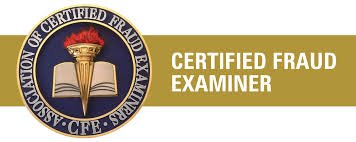Case Studies

Dealing with people who have abused their position of trust.
Accountants hold a position of trust to act in the best interests of theirs clients. However, there are occasions when an accountant commits fraud or embezzlement and like any other type of crime this activity will eventually be detected. Unfortunately, during the interval phrase of the fraud and its subsequent detection the clients’ funds will disappear and in some cases, clients may even be faced with considering to take bankruptcy.
Case A – the accused (company accountant) worked for a small family run double glazing business based in Bury, Lancashire. Over a three year period, the accused abused her position of trust as the company accountant to fund a lavish lifestyle. The accused generated a number of ghost accounts, falsified numerous financial documents, and forged payment signatures, all in the pursuit of extracting business funds for personal use. The embezzlement and fraudulent activity significantly impacted the business operational activities and placed the business owners in the position of considering bankruptcy. Upon investigating and analysing the financial transactions of the business, taking appropriate action with the accused, tracing assets, engaging with Police and other legal professionals, and external stakeholders, a satisfactory conclusion was attained for the client and bankruptcy was negated.
Case B – the accused (financial accountant) worked for a large Swedish international pipe manufacturing corporation. Over a eighteen month period, the accused systematically appropriated company funds to finance a personal property investment business adventure. The accused falsified financial documents and payment run entries, generated ghost employees and ghost accounts, genuine business activity transactions and documents were deleted in an attempt to hinder audits and investigations. The fraud and embezzlement had a serious impact on the business overseas activities and future planing. After investigating and analysing the manual and computer records, asset tracing and engaging closely with appropriate authorities (police, passport/border control, HMRC) and other external stakeholders, the client attained a satisfactory conclusion with asset recovery. The client implemented the recommended accounting control procedures and the vetting of international staff.
Dealing with HMRC during a tax investigation.
COP9 (abbreviation for Code of Practice 9) – this is the procedure initiated by HMRC when it investigates situations where it suspects a “serious” tax fraud has been committed. In dealing with such investigations, you should seek the assistance of a skilled representative, an accountant who understands fully all the aspects of such investigations and who will argue the case for you with HMRC.
HMRC investigations seriously challenges your tax situations. HMRC remit does not require them to conduct an overall objective assessment of your given situation. Under HMRC investigations, they will enquiry and test a wide range of situations and sources of funds that you have received into both your private bank accounts and business accounts.
The burden of proof in tax law rests with you and it is down to you to satisfy HMRC as to the source of all your income and should you be unable to do so, then HMRC is entitled to tax you on all the funds irrespective of where they originated from.
Case A – HMRC alleged omissions of £95,000 on property portfolio by a small independent property developer. After various discussions with the client and negotiations with HMRC over the property projects and following a business valuation, economic exercise. We disputed the figures produced by HMRC and reached a nil settlement.
Case B – HMRC alleged a local business had understated its revenue by £100,000 over its initial start up year. During our discussions with the client and HMRC, and conducting a business economic exercise, we obtained agreement to £8,000, saving the client in tax, interest and penalties.
Dealing with divorcing parties and the valuing of a business for court purposes.
Divorce cases are extremely stressful for all parties concerned and often exacerbated further when there is a business interest in existence between the spouses.
When engaged as forensic accountants with divorce cases, we are instructed by the firms of solicitors representing the wife and husband, to analyse and furnish an accurate monetary valuation of a spouse’s business. This often arises when one of the spouses feels that the other has not declared an accurate valuation of their business activities or assets.
During the investigation, we take into account all the factors given by the legal professionals, spouses explanations and the financial evidence from the business operations. Further research is conducted to establish how marketable the business type is. We then provide a report giving the value of the business to the respective legal teams for court purposes.
The valuation report is unbiased, it serves to reflect the true valuation of the business and aims to assist in the divorce proceedings so that a fair decision may be reached.
